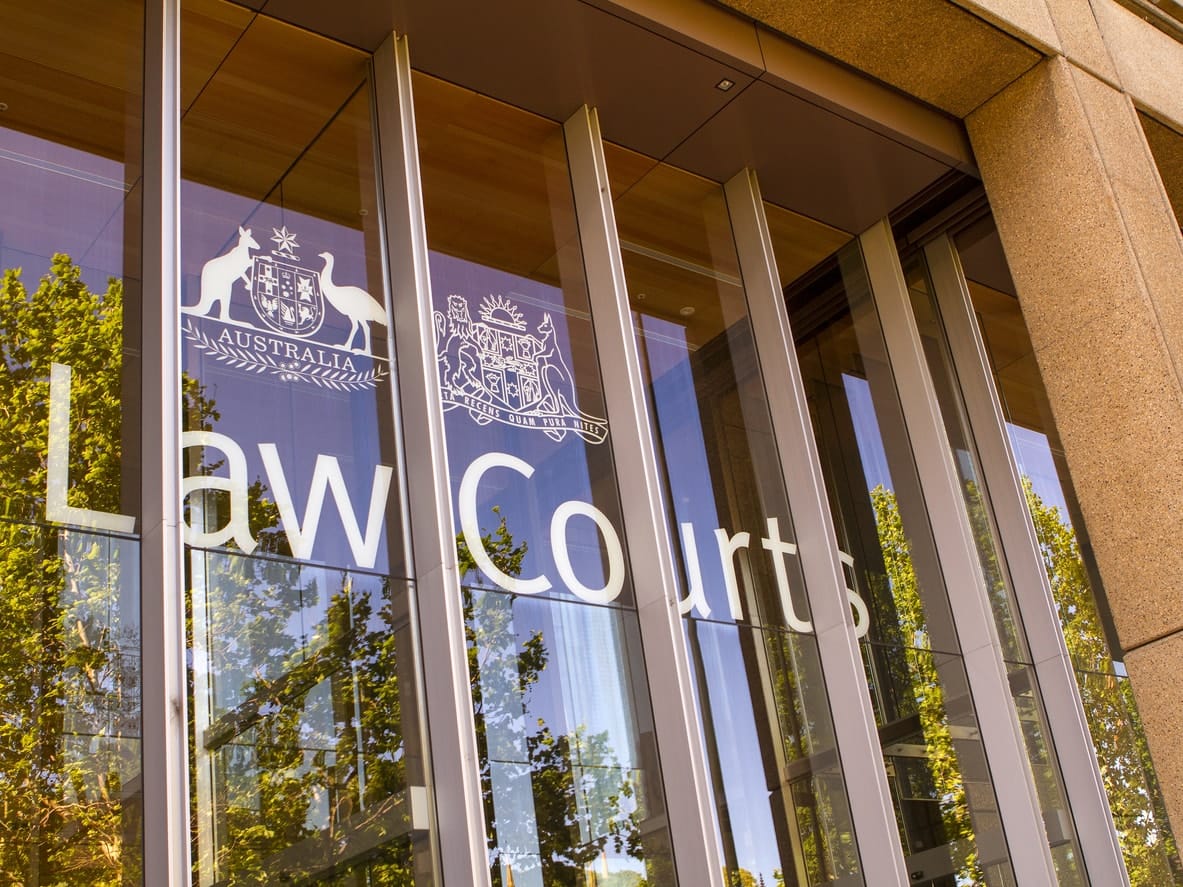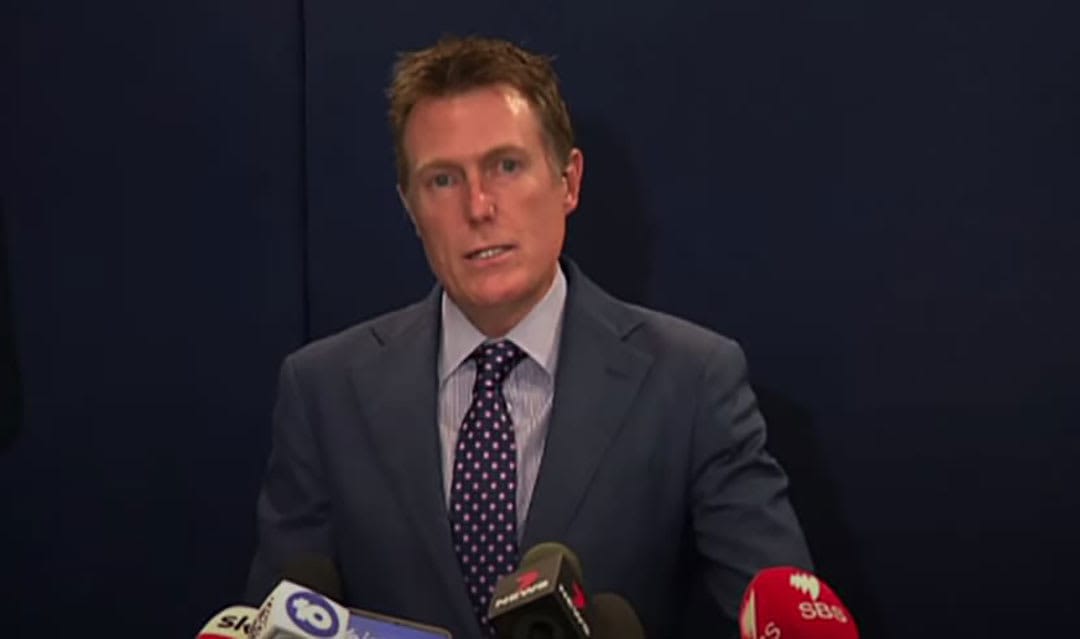
Attorney-General Christian Porter has vehemently and tearfully denied allegations that in 1988 as a 17-year-old he raped a girl, 16, during a debating team trip.
A NSW Police Force investigation into the matter is not continuing, following the complainant’s death last year.
As a legal matter, Porter is entitled to the presumption of innocence. As a political matter, Porter can still be sacked. Porter is not an employee – he’s a minister of the Crown.
In his press conference, Porter claimed it would set a bad precedent if he were to stand down over an unproved allegation. He said:
“If I stand down from my position as Attorney-General because of an allegation about something that simply did not happen, then any person in Australia can lose their career, their job, their life's work, based on nothing more than an accusation that appears in print."
Sacking and resignation precedents
However, there are several past examples of federal cabinet ministers resigning or being sacked over unproven allegations that they deny.
The AustralianPolitics.com website run by Malcolm Farnsworth maintains a list of federal ministers who have been dismissed or resigned from 1901 until now. That list includes several examples of ministers losing their jobs over unproven allegations.
Here are some examples extracted from the list:
Victor Garland (Curtin, WA), 6 February, 1976
Personal behaviour in relation to electoral irregularities. The Minister for Post and Telecommunications resigned after being accused of electoral offences. The ACT Magistrates Court dismissed the charges, and Garland returned to the ministry in 1977.
Ian Sinclair (New England, NSW), 27 September, 1979
Alleged criminal offences. The Minister for Primary Industry resigned after a dispute over his father’s will led to him being charged with forging his father’s signature. Sinclair was acquitted of the charges in 1980, and he returned to the ministry just before that year’s election.
Mick Young (Port Adelaide, SA), 14 July, 1983
Ministerial impropriety. The Special Minister of State resigned over allegations he had leaked cabinet discussions concerning the Combe-Ivanov affair. He was cleared by the Hope Royal Commission, and was reinstated as Special Minister of State in January 1984.
Alan Griffiths (Maribyrnong, Victoria), 23 January, 1994
Ministerial impropriety. The Minister for Industry, Technology and Regional Development resigned over the “Sandwich Shop” affair. He was accused of using party funds and electorate office resources to rescue a business partner from a failed sandwich shop business. Inquiries by the Department of Prime Minister and the federal police cleared Griffith of any wrongdoing, but he retired from parliament at the 1996 election.
Mal Brough (Fisher, Queensland), 29 December, 2015
Personal behaviour. The Special Minister of State and Minister for Defence Material
and Science stood aside pending the outcome of a police investigation into
allegations about his behaviour in relation to former speaker Peter Slipper and
James Ashby. Brough announced his retirement from parliament on February 13, 2016,
and did not contest the 2016 election. In 2017, the federal police investigation
was concluded without any charges being laid.
It would not be at all unusual for Porter to resign, be dismissed or stand aside pending the outcome of an independent inquiry.

The Tony Stewart case: Cabinet ministers can’t challenge their dismissal in court
In 2008, NSW Minister for Small Business Tony Stewart was sacked by NSW Premier Nathan Rees following allegations he had harassed a staff member at a cancer fundraiser. Stewart denied any wrongdoing.
An independent inquiry into the allegations conducted by a senior barrister found that Stewart had criticised the staffer in public, and had put his hand on her leg to prevent her from leaving. On receiving the report, the Premier advised the Lieutenant-Governor to dismiss Stewart.
Stewart tried to challenge his dismissal in court and sue the barrister who conducted the inquiry. He lost. The NSW Court of Appeal held that the decision to dismiss a cabinet minister, and the process leading up to that decision, is entirely political and no business of the courts.
The NSW Court of Appeal held that:
- cabinet ministers can be dismissed for any reason or no reason
- cabinet ministers have no right to be heard before they are dismissed
- cabinet ministers cannot challenge their dismissal in court
- the head of government owes a cabinet minister no duty of care in deciding whether or not to dismiss the cabinet minister.
NSW ministers hold office “during the Governor’s pleasure”. Principles of responsible government mean that the Governor (or Lieutenant-Governor in the Governor’s absence) makes decisions about appointing and dismissing ministers on the advice of the Premier. That process is entirely political.
The same principles apply to federal cabinet ministers. The Australian Constitution says that federal ministers “hold office during the pleasure of the Governor-General”.
Prime Minister Scott Morrison has full power to advise the Governor-General to sack Christian Porter, just like Premier Rees advised the NSW Lieutenant-Governor to sack Tony Stewart. And just like Stewart, Porter has no legal rights in the process.
The Prime Minister needs to act
The idea that an accused rapist can sit in the federal cabinet and hold office as Attorney-General without further action or process is untenable.
The Prime Minister has two options. Scott Morrison can simply sack Porter, not because Porter is guilty of any crime (legally, he is not), but because his presence in cabinet undermines confidence in the institutions of government, and is causing a political headache.
The idea that an accused rapist can sit in the federal cabinet and hold office as Attorney-General without further action or process is untenable.
Alternatively, and more fairly to Porter, Morrison can appoint an independent inquiry to look into whether Porter is a fit and proper person to serve in cabinet.
This is not the same thing as an inquiry into whether Porter is guilty of a crime. Porter is wrong in claiming that such an inquiry would force him to prove he’s innocent of a crime.
This scandal is no longer just about Porter and what did or did not happen 33 years ago. This scandal is now about Scott Morrison and his judgement today.





